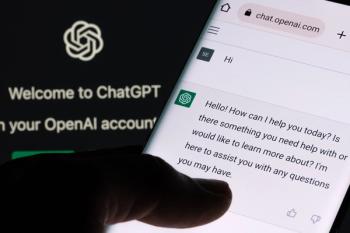
- September 2025
- Volume 41
- Issue 6
ACIP changes prompt concern as pediatricians prepare for fall vaccine season
Pediatricians are urged to follow 2024 guidelines amid ACIP upheaval, vaccine hesitancy, and access issues as children head back to school.
In a recent episode of Infectious Insights, a new podcast from Contemporary Pediatrics, pediatric infectious disease specialist Tina Tan, MD, FAAP, FIDSA, FPIDS; and general pediatrician Candice Jones, MD, discussed concerns surrounding the newly appointed Advisory Committee on Immunization Practices (ACIP), vaccine access challenges, and increasing vaccine hesitancy as the school year approaches.
Tan, who serves as president of the Infectious Diseases Society of America and editor in chief of Contemporary Pediatrics, was joined by Jones, a board-certified general pediatrician in Orlando, Florida, and spokesperson for the American Academy of Pediatrics (AAP). Their conversation highlighted the growing uncertainty within the pediatric community regarding immunization policy shifts and misinformation.
Concerns over changes to ACIP
Jones opened the discussion by expressing concern over recent changes to ACIP. “We have a new committee, and I am worried. I’m frustrated, as many of us pediatric providers are, I’m sure,” she said. “There’s a total level of uncertainty as [to] how my practice, how the care of my patients, can be impacted by these potential changes.”
Tan characterized the change in ACIP leadership as a “very radical” move. “Secretary [Robert F.] Kennedy Jr basically dismissed the entire ACIP committee,” she said. “The 17 people that he dismissed were very highly vetted scientific experts on vaccines.... The people that he replaced them with are known to be anti-vaccine, anti-science, and, basically, they want to do away with the childhood immunization schedule.”
Click here to watch the full episode of Infectious Insights
According to Tan, leading professional organizations—including the AAP, Infectious Diseases Society of America (IDSA), American College of Physicians (ACP), and American Academy of Family Physicians (AAFP)—are currently advising practitioners to follow the 2024 immunization schedule. “Right now, nobody should be listening to anything that this current ACIP or Secretary Kennedy is putting out there with regards to recommendations, because they are going to severely harm all the patients that we care for,” she said.
Jones affirmed this approach. “We look to the CDC, we look to the AAP, and other credible organizations to guide us.... I hope everybody got from you: Follow the current 2024 schedule.”
Maintaining vaccination practices and planning for the respiratory season
Tan noted that multiple organizations are working with the Vaccine Integrity Project to ensure science-based recommendations are made available. “The first recommendations that will come out will have to do with the respiratory infections...probably by the end of the summer,” she said, referencing updated guidance on influenza, COVID-19, RSV, and other respiratory vaccines.
Jones emphasized the importance of preparation as students return to school. “These are the things that pediatricians need to be ready for, an uptick when kids get back to school,” she said. “Making sure that kids are up to date on their vaccines...according to the 2024 schedule, I think is so important.”
Rising vaccine hesitancy and misinformation
Both physicians addressed the growing challenge of vaccine hesitancy, noting that misinformation remains widespread. “We need to take the time, basically, to speak to the parents, find out what their concerns are, and help address them,” Tan said. “Parents are getting very, very confused. They don’t know what information to believe.”
Jones provided a clinical perspective from her practice at a federally qualified health center (FQHC) in Orlando. “Our patient population is very sensitive to pseudoscience...to misinformation, to myths,” she said. “One day I was so frustrated, I said, ‘I don’t know what I’m going to do,’ because every day I’m having a family that has other kids—parents are vaccinated, older kids are vaccinated—but now they have a new baby and they’re no longer vaccinating.”
She emphasized her strategy for addressing hesitancy. “I try to engage the why. ‘What helped you to come to this decision? Can we discuss it?’” Jones also highlighted the use of credible resources such as the Vaccine Education Center at Children’s Hospital of Philadelphia (CHOP) to inform and reassure families.
Despite the challenges, Jones noted that “overwhelmingly, most parents still vaccinate their children,” but both speakers agreed that hesitancy and refusal are increasing, with consequences already visible. “We have a measles outbreak,” Jones said. Tan added, “Right, exactly. And a pertussis outbreak.”
Structural barriers and insurance coverage
The conversation also addressed broader access issues, including the potential implications of changes in Medicaid policy and the Vaccines for Children (VFC) program. “With the potential cuts...access to vaccination for some people could be a major issue,” Tan said.
Jones noted concern among pharmacists about reimbursement and availability. “If [a vaccine] is not recommended...the VFC program may not carry it for us to order it,” she said. “We [may not] even have it to give for free or covered.”
Tan reported that advocacy efforts had prompted some large insurers to maintain coverage despite potential federal changes. “We spoke to the insurers and let them know...if they decided not to cover vaccines, they would have to be spending a lot more,” she said. “From what I’m hearing, the vast majority of the large insurers are going to continue to cover vaccines.”
Jones praised this effort: “Kudos to that advocacy. We’re going to have to take large groups like the AAP and individuals like you and advocate and work around the madness.”
New vaccine developments
The discussion concluded with a look at upcoming vaccine options. Tan shared updates on new monoclonal antibody products for RSV and additional meningococcal vaccines. “The new monoclonal antibody for coverage of RSV will be given to all babies under 8 months of age,” she said, though she noted that duration of protection data is not yet available. Regarding meningococcal vaccines, she added that “the question becomes, what are you going to cover and contain in your offices?”
Jones explained how her clinic handles these decisions: “At our FQHC, me being the primary pediatrician...we decide which one will work best for us... and stick with one and go with that... But it’s always good to have options, especially if there are ever supply issues.”
Moving forward
Jones reflected on the conversation by acknowledging the importance of continued guidance and support. “What I got from it is...I have somewhere to go and stick with for my guidance currently, and that there are very bright people working in the background to help us overcome this,” she said.
Articles in this issue
6 months ago
CPAP/bilevel PAP in the home setting6 months ago
Patches of hair loss on scalpNewsletter
Access practical, evidence-based guidance to support better care for our youngest patients. Join our email list for the latest clinical updates.






